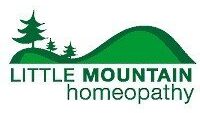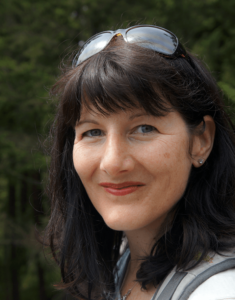 Little Mountain Homeopathy Client Testimonial
Little Mountain Homeopathy Client Testimonial
After a long 3.5 year journey with chronic sinusitis, I just had my 6 month root canal check up with the dental specialist, which showed improvement in inflammation around the canal roots and sinus floor. Sonya’s homeopathic treatment provided the healing needed to resolve the underlying sinus issue.
To help others that might also find themselves in my position with a sinus issue that western medicine finds very tough to cure, I would highly recommend they seek support from Sonya. Homeopathy rounds out the western medical approach and of course can address so much more than just sinus issues.
– Karen Wood
http://fireflytransformation.com/
Scientific Research on Homeopathy for Sinusitis
A total of 144 patients with acute rhinosinusitis were treated in a randomized, double-blind study either with a homeopathic remedy (n=72) or placebo (n=72). At the control examinations after 7, 14 and 21 days, five sinusitis-typical symptoms were measured with scores from 0 (absent) to 4 (very strong). The change of sum score of the sinusitis-typical symptoms (max. 20 points) during the treatment served as the primary efficacy criterion.
In the homeopathic treatment group, the average sum score dropped from initially 12.1+/-1.6 to 5.9+/-2.0 points after 7 days. In the placebo group it decreased from 11.7+/-1.6 to 11.0+/-2.9 points (p<0.0001). The homeopathic treatment resulted in freedom from complaints in 90.3% of the patients and improvement in a further 8.3%, whereas in the placebo group, the complaints remained unchanged or became worse in 88.9% of the patients. Only one adverse event occurred in one patient from the placebo group.
Kneis KC, Gandjour A. “Economic evaluation of Sinfrontal in the treatment of acute maxillary sinusitis in adults.” Appl Health Econ Health Policy. 2009;7(3):181-91.
Sinfrontal, a complex homeopathic medication, is popular in Germany for the treatment of ear, nose and throat and respiratory tract infections. Unlike many other homeopathic or herbal medications, the efficacy and safety of Sinfrontal has been demonstrated in a number of clinical studies of patients with sinusitis. To assess the cost effectiveness of Sinfrontal versus placebo in the treatment of adults with acute maxillary sinusitis (AMS) in Germany. A secondary objective was to assess the cost effectiveness of Sinfrontal versus standard treatment with antibacterials. Sinfrontal was compared with placebo in a cost-utility analysis based on data from a randomized controlled clinical trial over 3 weeks (Sinfrontal group: n = 57; placebo group: n = 56). Trial data were analysed from a societal perspective; resource use was valued with German unit costs for 2005. In a secondary analysis, the longer-term cost utility of Sinfrontal versus placebo was estimated over a total of 11 weeks based on an 8-week post-treatment observational phase. In addition, the cost effectiveness of Sinfrontal versus antibacterials was determined based on an indirect comparison of placebo-controlled trials. Sinfrontal led to incremental savings of euro 275 (95% CI 433, 103) per patient compared with placebo over 22 days, essentially due to the markedly reduced absenteeism from work (7.83 vs 12.9 workdays). Incremental utility amounted to 0.0087 QALYs (95% CI 0.0052, 0.0123), or 3.2 quality-adjusted life-days (QALDs). Bootstrapping showed that these findings were significant, with Sinfrontal being dominant in 99.9% of simulations. The results were robust to a number of sensitivity analyses. In the secondary analysis, Sinfrontal led to incremental cost savings of euro 511 and utility gains of 0.015 QALYs or 5.4 QALDs compared with placebo. Compared with antibacterials, Sinfrontal had a significantly higher cure rate (11% vs 59%; p < 0.001) at similar or lower costs. The results of this economic evaluation indicate that Sinfrontal may be a cost-effective treatment for AMS in adults.
628 patients suffering from CS confirmed on X-ray were enrolled from eight Institutes and Units of the Central Council for Research in Homoeopathy. All 550 patients with at least one follow-up assessment were analyzed. There was a statistically significant reduction in CSAS (P = 0.0001, Friedman test) after 3 and 6 months of treatment. Radiological appearances also improved. A total of 13 out of 17 pre-defined medicines were prescribed in 550 patients, Sil. (55.2% of 210), Calc. (62.5% of 98), Lyc. (69% of 55), Phos. (66.7% of 45) and Kali iod. (65% of 40) were found to be most useful having marked improvement. 4/17 medicines were never prescribed. No complications were observed during treatment.
Weiser M, Clasen B (1994). Randomisierte plazebokontrolierte Doppelblindstudie zur Untersuchung der klinische Wirksamkeit der homöopathischen Euphorbium compositum-Nasentropfen S bei chronischer Sinusitis [Randomized, placebo-controlled, double-blind study of the clinical efficacy of the homeopathic Euphorbium compositum-S nasal spray in cases of chronic sinusitis]. Forschende Komplementärmedizin; 1:251–259.
Clinical trial, with positive findings, on a total of 131 patients treated for long-term sinusitis by Ear Nose & Throat specialists in Germany. Approximately two thirds of the patients were randomly allocated to receive a homeopathic medicine called Euphorbium (in either of two different formulations), and the others received a dummy pill (placebo). They were not told which of the treatment groups they were in. After 5 months, the patients who received Euphorbium reported more improvement in sinusitis symptoms than those that received placebo.
An evaluation of homeopathic treatment and the outcomes in patients suffering from sinusitis for ≥12 weeks in a usual care situation. Subgroup analysis including all patients with chronic sinusitis (ICD-9: 473.9; ≥12 weeks duration) of a large prospective multicentre observational study population. Consecutive patients presenting for homeopathic treatment were followed-up for 2 years, and complaint severity, health-related quality of life (QoL), and medication use were regularly recorded. We also present here patient-reported health status 8 years post initial treatment.
The study included 134 adults (mean age 39.8 ± 10.4 years, 76.1% women), treated by 62 physicians. Patients had suffered from chronic sinusitis for 10.7 ± 9.8 years. Almost all patients (97.0%) had previously been treated with conventional medicine. For sinusitis, effect size (effect divided by standard deviation at baseline) of complaint severity was 1.58 (95% CI 1.77; 1.40), 2.15 (2.38; 1.92), and 2.43 (2.68; 2.18) at 3, 12, and 24 months respectively. QoL improved accordingly, with SF-36 changes in physical component score 0.27 (0.15; 0.39), 0.35 (0.19; 0.52), 0.44 (0.23; 0.65) and mental component score 0.66 (0.49; 0.84), 0.71 (0.50; 0.92), 0.65 (0.39; 0.92), 0.74 (0.49; 1.00) at these points. The effects were still present after 8 years with SF-36 physical component score 0.38 (0.10; 0.65) and mental component score 0.74 (0.49; 1.00).
Patients with sinusitis treated with ‘classical’ homeopathy showed marked health and quality of life improvements that lasted for 8 years. The extent to which the observed effects are due to lifestyle regulation and placebo or context effects associated with the treatment needs clarification in the future from more explanatory studies.
A prospective, randomized, double-blind, placebo-controlled, phase III clinical trial was conducted for a treatment period of 22 days, followed by an eight-week posttreatment observational phase. The clinical trial was conducted at six trial sites in the Ukraine. One hundred thirteen patients with radiography-confirmed AMS participated in the trial. Fifty-seven patients received Sinfrontal and 56 patients received placebo. Additionally, patients were allowed saline inhalations, paracetamol, and over-the-counter medications, but treatment with antibiotics or other treatment for sinusitis was not permitted.
From day zero to day seven, Sinfrontal caused a significant reduction in the SSS total score compared with placebo (5.8 +/- 2.3 [6.0] points vs 2.3 +/- 1.8 [2.0] points; P < .0001). On day 21, 39 (68.4%) patients on active medication had a complete remission of AMS symptoms compared with five (8.9%) placebo patients. All secondary outcome criteria displayed similar trends. Eight adverse events were reported that were assessed as being mild or moderate in intensity. No recurrence of AMS symptoms occurred by the end of the eight-week posttreatment observational phase. This complex homeopathic medication is safe and appears to be an effective treatment for acute maxillary sinusitis.
In a multi-centre, controlled, cohort study, 739 people suffering from rhinitis or sinusitis were given either xylometazoline (a drug commonly used for nasal congestion, sinusitis and hay fever) or a homeopathic combination. Both forms of therapy provided similarly effective results.
In a randomised double-blind placebo controlled trial, 155 people suffering from sinusitis were given either a placebo or a homoeopathic combination (Heel Euphorbium compositum). Subjective responses showed a greater improvement in those using the homoeopathic combination than those given placebo.

 Little Mountain Homeopathy Client Testimonial
Little Mountain Homeopathy Client Testimonial